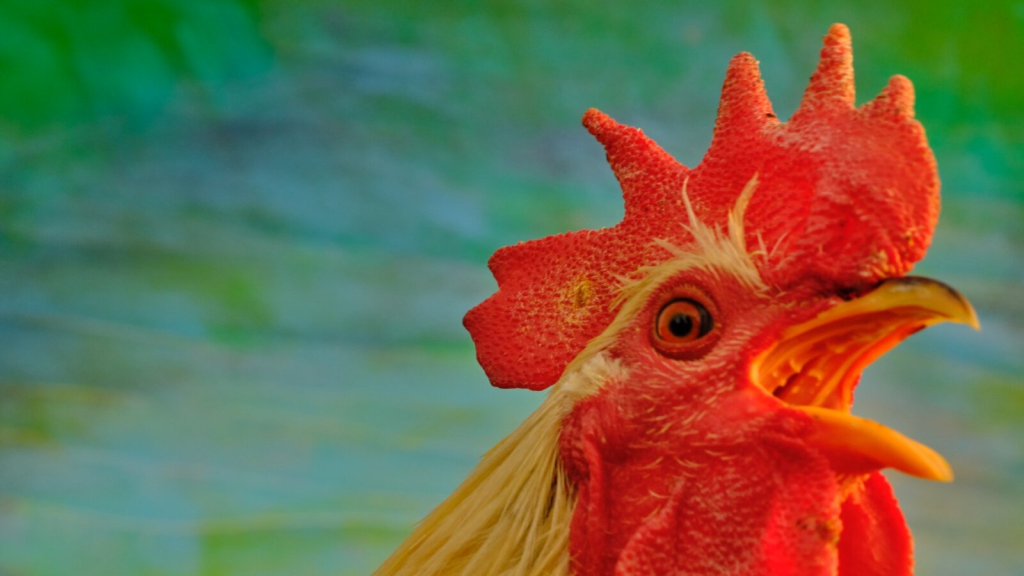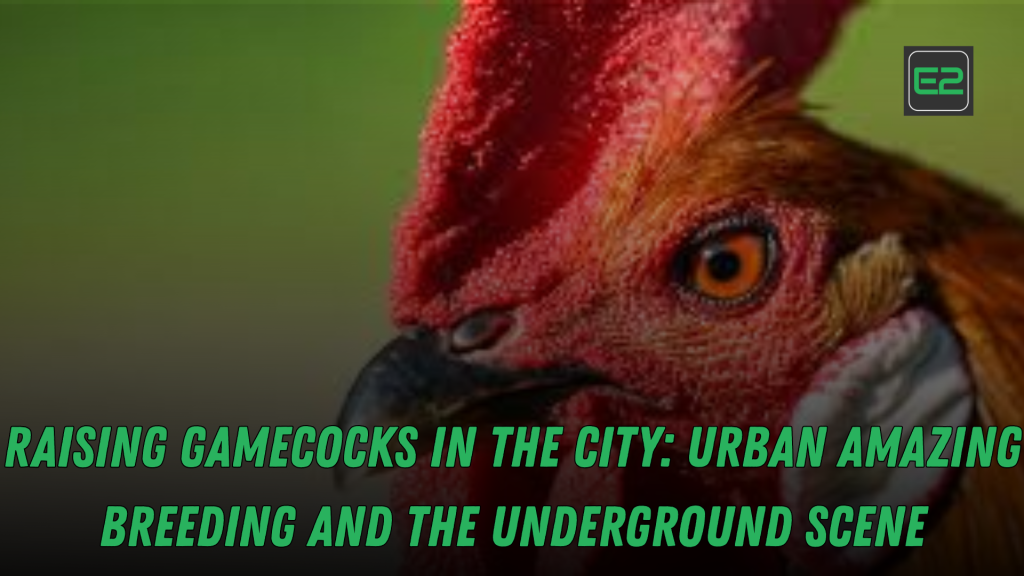Raising gamecocks in urban areas is an intriguing and controversial practice that has long been part of many cultures, especially in regions like Southeast Asia and the Philippines. While the sport of cockfighting often takes place in rural settings, the growing trend of urban breeding has made it possible for enthusiasts to continue raising and training gamecocks in cities. This article explores the unique aspects of urban gamecock breeding, the challenges it faces, and its connection to the underground scene of cockfighting.
Table of Contents
1. The Tradition of Gamecock Breeding
1.1. Historical Background of Gamecock Breeding
The practice of raising gamecocks dates back thousands of years, with evidence showing that the sport originated in Asia and later spread to Europe and the Americas. Historically, gamecocks were bred for combat, with their aggressive behavior and ability to fight often being highly prized.
- Cockfighting as Tradition: In many cultures, cockfighting was seen not just as a sport, but also as a rite of passage, a form of entertainment, and even a social activity that brought communities together.
- Breeding for Strength and Agility: Breeders carefully selected gamecocks based on their physical attributes and temperament, choosing the strongest and most aggressive birds to pass on their traits to future generations.

1.2. Transition to Urban Areas
While cockfighting and gamecock breeding were traditionally associated with rural areas, urbanization has led to an increasing number of enthusiasts in cities. People living in densely populated environments have found creative ways to raise gamecocks despite space limitations and the increasing regulations surrounding cockfighting.
- Urban Gamecock Breeding: Urban breeders often use small, confined spaces like rooftops, backyards, and basements to raise their birds. They adapt by providing specialized care, nutrition, and exercise routines in these restricted environments.
- Challenges of Urban Breeding: Raising gamecocks in the city comes with challenges like limited space, noise restrictions, and the risk of neighbors complaining, but urban breeders find ways to manage these obstacles.
2. The Urban Gamecock Breeding Scene
2.1. The Underground Cockfighting Scene
While cockfighting is regulated or outright banned in many places, it still thrives in underground settings. In cities, illegal cockfighting rings are often hidden in plain sight, with enthusiasts secretly gathering to watch matches and trade gamecocks.
- Underground Cockfights: These events are typically held in hidden locations such as basements, warehouses, or private homes, where the police rarely intervene.
- The Role of Technology: With the rise of social media and dark web forums, information about underground cockfighting events has become more accessible. Breeders and enthusiasts can now communicate more easily and organize secretive events with little risk of exposure.
2.2. The Rise of Online Platforms for Breeding and Trading Gamecocks
The internet has revolutionized many industries, and the world of gamecock breeding is no exception. Breeders now turn to social media and dedicated online platforms to connect with other enthusiasts, showcase their birds, and sell their gamecocks to interested buyers.
- Social Media: Platforms like Facebook and Instagram have allowed gamecock breeders to form global communities where they can share breeding tips, discuss techniques, and even sell their birds. Hashtags like #gamecockbreeding and #urbanbreeding are frequently used to connect breeders.
- Online Marketplaces: Websites and forums dedicated to the buying and selling of gamecocks have also flourished. These platforms provide a discreet way for enthusiasts to exchange birds, tools, and tips, often circumventing regulations set by authorities.

2.3. Urban Breeding Communities and Influencers
Within cities, there has been a rise in small but dedicated communities of urban breeders. These individuals often share a passion for the sport and trade knowledge about raising gamecocks, training them for fights, and providing the proper nutrition and healthcare.
- Urban Gamecock Collectives: Many urban breeders band together in informal collectives, where they can pool resources, offer advice, and hold training events. These groups often operate under the radar to avoid legal scrutiny.
- Influencers in the Breeding Community: Some urban breeders have gained large followings on social media due to their expertise in raising champion gamecocks. These influencers have helped spread knowledge about urban gamecock breeding to a wider audience, even garnering sponsorships from brands that cater to animal enthusiasts.
Amazing World Slasher Cup: The Olympics of Philippine Cockfighting
3. Challenges and Controversies in Urban Gamecock Breeding
3.1. Legal and Ethical Concerns
One of the most significant issues with urban gamecock breeding is the legal status of cockfighting and breeding. In many countries, cockfighting is illegal due to its violent nature, and breeders face the risk of legal consequences for participating in these activities.
- Legal Restrictions: Many cities have implemented strict regulations or outright bans on cockfighting. Urban breeders may find themselves in legal trouble if their activities are discovered.
- Animal Welfare Concerns: Animal rights activists argue that breeding gamecocks for the purpose of fighting causes unnecessary harm to the birds. Ethical concerns about the treatment of the animals involved in these events remain a contentious issue.
3.2. The Risk of Abuse and Exploitation
The underground nature of urban gamecock breeding can also foster a culture of abuse and exploitation. In some cases, gamecocks are subjected to cruel treatment, including improper confinement, lack of proper nutrition, and injury from fights.
- Lack of Regulation: Without oversight, the conditions under which gamecocks are bred and raised can be substandard, leading to health problems for the birds and, in some cases, abuse.
- Exploitation for Profit: In the underground scene, breeders and organizers may exploit gamecocks purely for financial gain, using the birds as tools for gambling and betting rather than as living creatures to be cared for.

4. The Future of Urban Gamecock Breeding
4.1. Increasing Regulations and Enforcement
As urban gamecock breeding continues to grow, local governments are expected to implement more stringent regulations to control illegal cockfighting and the underground breeding scene. Increased enforcement efforts could push breeders further underground, making it more difficult for authorities to track and regulate these activities.
- Potential Legalization and Reform: Some regions may move towards legalizing cockfighting, implementing regulations to ensure that it is conducted in a humane and controlled environment. However, this is a highly debated issue due to the ethical implications.
- Government and Community Solutions: Collaboration between local authorities and breeders could result in better management practices, promoting the care and well-being of gamecocks while regulating the sport.
4.2. Growing Awareness of Animal Rights
As society becomes more conscious of animal rights, the underground gamecock breeding scene may face increasing pressure. Activists and organizations advocating for animal welfare could challenge the practice, pushing for more humane treatment of animals and better breeding practices.
- Humane Breeding Practices: The future of urban gamecock breeding may depend on breeders adapting to more ethical standards, ensuring that their birds are raised and cared for in a way that minimizes suffering.
- Alternatives to Fighting: Many breeders are exploring alternatives to traditional cockfighting, such as raising gamecocks for non-combat purposes or focusing on breeding for exhibitions or other peaceful purposes.
What are your thoughts?
Urban gamecock breeding continues to be a controversial yet deeply ingrained part of the culture for some enthusiasts. Despite the challenges, the practice remains popular, fueled by a combination of tradition, competition, and the underground scene that keeps it thriving in the shadows. While legal concerns and animal welfare issues loom large, the future of urban breeding may depend on finding a balance between maintaining tradition and ensuring ethical treatment for the birds.
Call to Action: If you’re interested in urban gamecock breeding or just curious about the culture surrounding it, consider learning more about the ethical aspects of this practice and how it could evolve in the future. Join online communities, attend events, or explore the legal frameworks that are shaping this underground scene.
Frequently Asked Questions (FAQs)
1. What is urban gamecock breeding?
Urban gamecock breeding involves raising gamecocks in urban environments, such as rooftops, basements, or small backyards, due to limited space. Breeders must adapt their methods to accommodate city living.
2. Is cockfighting legal in all places?
No, cockfighting is illegal in many countries and regions due to concerns over animal cruelty. However, in some places, it is still practiced underground or in areas where it remains legal.
3. How do breeders manage limited space in cities?
Breeders often use confined spaces like rooftops or converted rooms, providing specialized care, exercise routines, and nutrition to ensure the well-being of the gamecocks.
4. Why is there controversy surrounding urban gamecock breeding?
The practice faces legal challenges due to its connection with illegal cockfighting and concerns over animal welfare, as some breeders may not follow humane treatment guidelines.
5. What is the future of urban gamecock breeding?
The future will depend on stricter regulations, animal welfare concerns, and the potential for reform or legalization of cockfighting. Ethical breeding practices may also become more prominent as public awareness grows.
